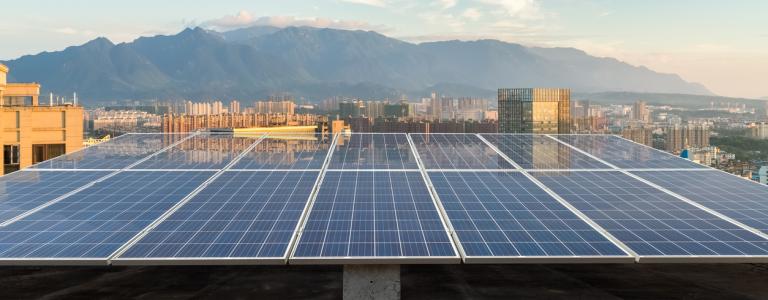COP24 Side Event – Alignment to Advance Climate-Resilient Development: Linking NAPs and NDCs
The goal of this COP24 event is to enhance understanding and the benefits of alignment and explore how countries can get started on aligning different policy processes, specifically NAPs and NDCs.
Recent years have seen a number of global commitments aimed at putting human development on a more sustainable pathway.
This has been recognized in international agendas, including the 2030 Agenda for Sustainable Development, which established the Sustainable Development Goals (SDGs); the Paris Agreement under the United Nations Framework Convention on Climate Change (UNFCCC); and the Sendai Framework for Disaster Risk Reduction (DRR); all of which have drawn links between climate change adaptation, DRR and efforts to achieve sustainable development.
For many countries, alignment of NDCs and NAP processes under the Paris Agreement may represent a feasible starting point and can provide a strong foundation for alignment with other agendas. Although both policy processes are linked to the Paris Agreement and many countries have included commitments towards adaptation in their NDCs, the links between the two are not always clear. The NDC is often led by the government actors responsible for climate change mitigation, who may be less familiar with how the adaptation commitments may be operationalized. Similarly, those leading the NAP process may not be considering it in the context of adaptation information in the NDC.
This session will explore ways to advance implementation of adaptation needs and goals by realizing linkages between the NAP process and NDCs. It will highlight the outcomes of a recent assessment of 15 countries perspectives on alignment, focusing on linking NAPs and NDCs as a basis for broader alignment towards climate-resilient development. Following a framing presentation, an interactive panel discussion with short inputs from country representatives and experts will follow as a basis for discussion among participants.
Speakers:
- Robert Bradley, Knowledge and Research Director, NDC-Partnership
- Malte Maass, Advisor, Deutsche Gesellschaft für Internationale Zusammenarbeit (GIZ))
- Rohini Kohli, Lead Technical Specialist, NAP Global Support Programme (NAP-GSP)
- Vositha Wijenayake, Government of Sri Lanka
- Emily Fadzai Matingo – NAP Focal Point, Government of Zimbabwe
- Jerome Ilagan, Chief, Policy Research and Development - Government of Philippines
- Edgar Hernán Cruz Martínez, Climate Finance Coordinator - Government of Colombia
Goal:
Enhance understanding and the benefits of alignment and explore how countries can get started on aligning different policy processes, specifically NAPs and NDCs.
Objectives:
Explore and increase understanding of:
- Better understand the linkages and areas of coherence between the Paris Agreement, the Sendai Framework and the 2030 Agenda at the international scale
- Better understand the potential benefits and challenges associated with aligning the NAP process and NDC.
Be aware of entry points and potential actions that countries can take to get started on aligning the NAP process and NDC towards climate-resilient development.
Upcoming events
A Municipal Perspective on the Value of Natural Infrastructure
This webinar will showcase examples the cost-effectiveness of natural infrastructure from a municipal perspective. Focusing on what municipalities need—what evidence and numbers they rely on, and what tools and planning processes are required to ensure that natural infrastructure is assessed alongside traditional infrastructure for cost-effectiveness.
Building Bridges: The State of Nature-Based Investments
Join us for a panel at the Building Bridges conference in Geneva, Switzerland, to discuss the state-of-play of nature-based investments and the potential opportunities they present.
Through Her Lens: Women leading change in sustainable agriculture and market inclusion
Despite the critical role that women play in agricultural production, they still do not have equal access to global agricultural supply chains on terms that benefit them.
